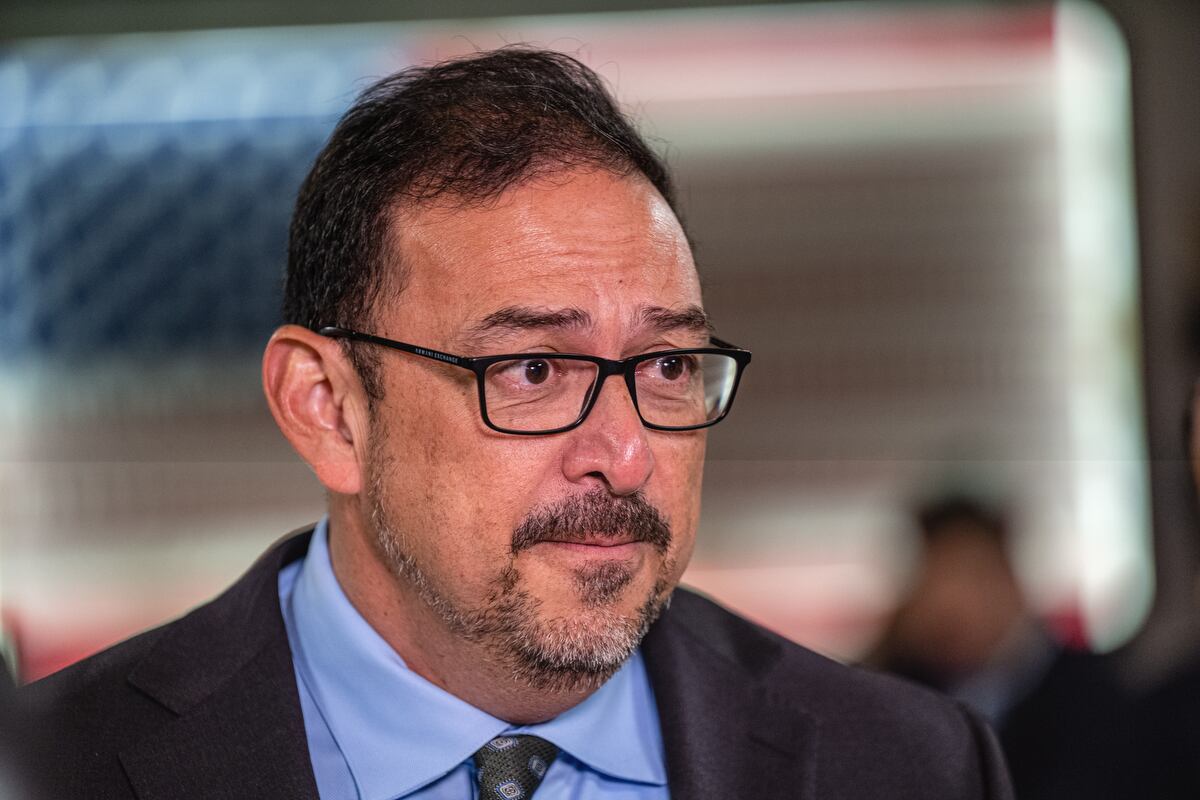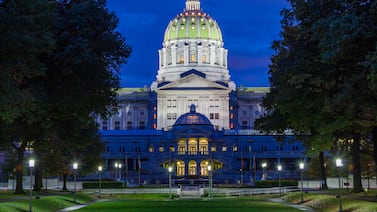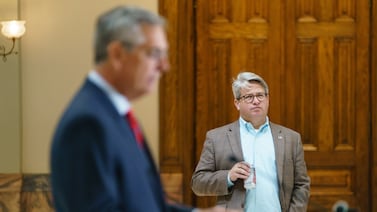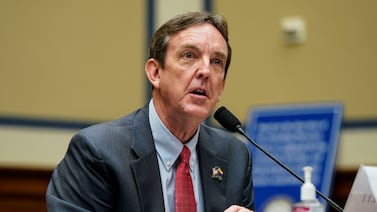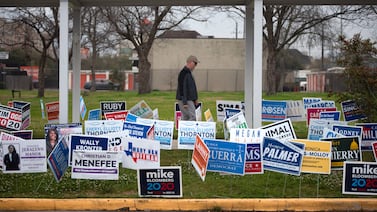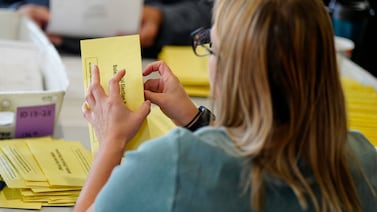Votebeat is a nonprofit news organization reporting on voting access and election administration across the U.S. A version of this post was originally distributed in Votebeat’s weekly newsletter.
People who run elections are always deep into thinking about the next elections, and the ones after that. So it was as secretaries of state and state election directors gathered this week at a Washington, D.C., hotel, a few months after a largely smooth midterm election.
The next presidential election is coming fast, and threats to elections continue to loom large. Many high-profile candidates who prominently promoted baseless conspiracy theories about elections did not win, but certainly, some public officials continue to sow doubts.
The national conferences where those responsible for managing elections come together, which happen a couple of times a year, are a window into the constant effort and endless details key to pulling them off — the technology, the deadlines, the processes, the laws.
And, of course, the money and security needed for them.
Election officials around the country have long pushed for hundreds of millions of dollars in federal funding to go towards spiraling election costs; Congress allocated just $75 million for all 50 states earlier this year.
After congressional staff from U.S. House and Senate committees with oversight on elections spoke to secretaries of state about priorities, newly elected Arizona Secretary of State Adrian Fontes, a Democrat, pointedly asked about their plans for federal funding, citing a “federal responsibility to help administer these federal elections.”
It’s clear more money for elections faces a difficult path in a divided Congress. Steven Spaulding, of the Senate Rules Committee, had already said that the chair, Sen. Amy Klobuchar, a Minnesota Democrat, has advocated for more, and said the committee is “striving to work on a bipartisan basis to get that done.”
But Caleb Hayes, the counsel for the Republican majority on the House Administration Committee, wasn’t encouraging. In response to Fontes’ question, he pointed to existing grant programs.
“It is not our position that it makes sense for the federal government to fund the day to day operations of what we see as state government responsibilities,” he said. Fontes rebutted.
“Without something dependable, consistent, and sustainable, we’re sort of guessing” at what federal money will be available, Fontes said.
At other panels, election officials talked about security issues, from cybersecurity to physical security, as they operate in a climate of constant threats.
Speaking as part of the National Association of State Election Directors conference, John Keller, the principal deputy chief of Department of Justice’s Public Integrity Section, told the crowd that every Federal Bureau of Investigation jurisdiction has an election crime coordinator, or ECC, and asked, “Who has had no contact with the ECC in their jurisdiction?”
There was a pause. No hands went up. “That’s great,” he said.
And Heider Garcia, the elections administrator in Tarrant County, Texas, whose patient approach to election skeptics made him the subject of a Votebeat profile and an episode of “This American Life,” joined a panel Friday morning to talk about his approach to answering questions from constituents who believe incorrect information about elections.
His mindset, he said, is that he isn’t Starbucks and residents of his county can’t go somewhere else. “I’m tied to them and they’re tied to me,” he said. “We’re in this together. We’re like a marriage that has to work and we have to go through this counseling together and just find a way, right?“
In an interview with Votebeat, Colorado Secretary of State Jena Griswold, a Democrat, said Congress’ failure to set national standards for ballot access and election security means Congress has “abandoned American democracy to the states.”
Griswold listed all the measures she and her state have taken since the 2020 election she said were designed to shore up processes and ensure elections are safe — including a new law meant to protect against insider threats and ensuring the secretary of state can certify election results if a county declines to do so, for example.
“The sentiment is that voters saved democracy in ’22, but we are not out of the woods,” she said.
Back Then
If it seems like the good folks at NASS and NASED conferences have been asking the federal government for the same stuff — mainly money — for decades, you’re right. Consider this reporting from 2001 (children born in this year can now legally drink, which blows my mind): “The only thing the secretaries want of the federal government is more financial help to do the job right so that states won’t be forced to rely on the courts to resolve election standoffs.” The work at that NASS conference informed the writing of the Help America Vote Act, which would pass the next year and — for the first time in history — infuse quite a bit of federal money into the election system.
In Other Voting News
A partially released Georgia grand jury report shows that jurors who are investigating whether former President Donald Trump and others interfered in Georgia’s 2020 presidential election believe that at least one witness may have committed perjury, though the report does not name them, and also that no widespread fraud took place that could overturn the election, the New York Times reported.
An ideologically divided North Carolina Supreme Court granted a request from Republican lawmakers to rehear two recent, hotly contested voting rights cases, on redistricting and voter ID, after Republican candidates won a majority on the court in November, the News & Observer reported.
Former President Donald Trump’s campaign paid a research firm to search for fraud and irregularities in the results of the 2020 presidential election, but didn’t release the research after it failed to find evidence that would have affected the outcome of the election, the Washington Post reported.
Some state officials are proposing new measures to combat election conspiracy theories and threats against election officials, pushing back against mistrust of elections and threats that, they say, remain a force, the Washington Post reported.
Carrie Levine is Votebeat’s story editor and is based in Washington, D.C. She edits and frequently writes Votebeat’s national newsletter.Contact Carrie at clevine@votebeat.org.


